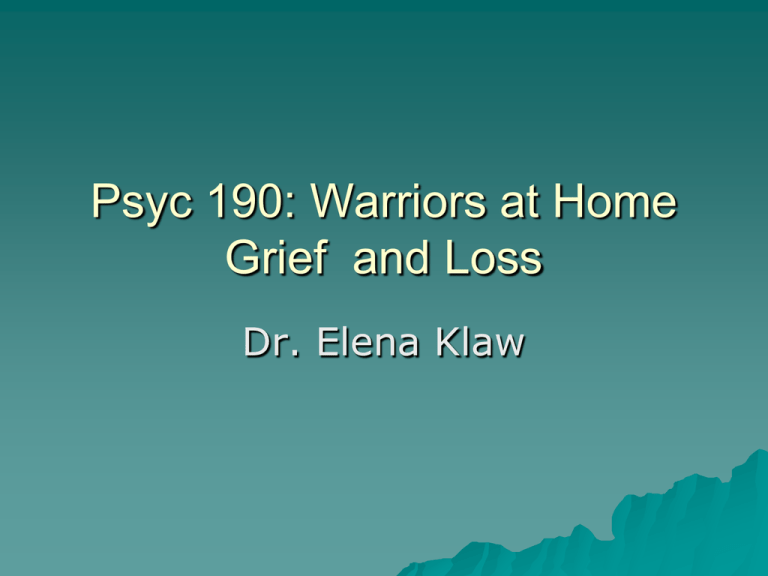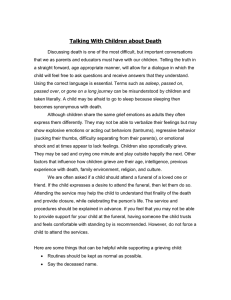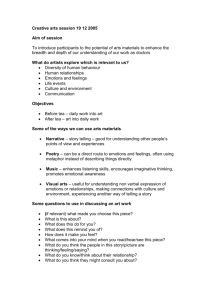Psyc 190: Warriors at Home Grief and Loss Dr. Elena Klaw
advertisement

Psyc 190: Warriors at Home Grief and Loss Dr. Elena Klaw Goals for Today Grief Prolonged reactions Primary v. secondary emotions Guilt and self blame Dealing with painful emotions Suicide Grief Reaction to loss Normal reactions: shock, despair, anger, guilt, numbness Problematic if reactions are prolonged and symptoms interfere with life and/or relationships May be triggered by reminders and anniversaries Prolonged Complex Reactions Unwanted thoughts Nightmares Angry outbursts Hopelessness Difficulty concentrating Physical symptoms Exhaustion Eating problems Substance use Primary vs. Secondary (Complex) Emotions Primary Emotions: pure, simple feelings/limbic system responses that happen here and now as a result of a loss e.g. sadness Secondary (Complex Emotions): mixed feelings that are reactions to our primary feelings e.g. shame, hopelessness Secondary Emotions: protect us from the pain of our gut reactions, allow us to distance ourselves from our feelings to have a sense of control or power Thus, victims of trauma and abuse almost Exploring Primary vs. Secondary Emotions Hurt Fear Anger Sorrow Grief Helplessness Depression Hopelessness Demoralization Despair Worthlessness Guilt Shame Rage Hate Guilt & Self Blame Guilt: A feeling of responsibility or remorse for some offense, crime, wrong, etc., whether real or imagined. Involves ruminating, replaying situation and assigning blame to self Getting stuck may be less painful and scary than facing the loss and fear Linked to PTSD, isolation & depression Long term consequences may be self harm, risky behaviors, and suicide Warriors have been put in impossible situations, mission to protect and defend Dealing with Painful Emotions Dealing with grief requires facing memories and commemorating losses e.g. through letters, scrapbooks, memorials, prayer, talking about the dead. Help can be found through counseling, spiritual support, through mutual help, or a support group. If you think someone who is suicidal, ask “are you thinking of harming yourself?” Communicate “You matter to me and I am here to support you. I care about you and you don’t deserve to be in this much pain.” Connect the person to Crisis Hotline, U. Counseling Services (924-5910, Admin), Vet Center and make sure that support is present Suicide Assessment Ideation: thoughts of wanting to be dead, killing oneself Plans: specific ideas as how one would kill themselves Means – the tools to kills oneself e.g. firearms A psychiatric team or police officer can evaluate for involuntary hospitalization if a person who is at risk to self or others refuses treatment (WIC 5150) As mental health professionals, we are mandated to keep others safe



